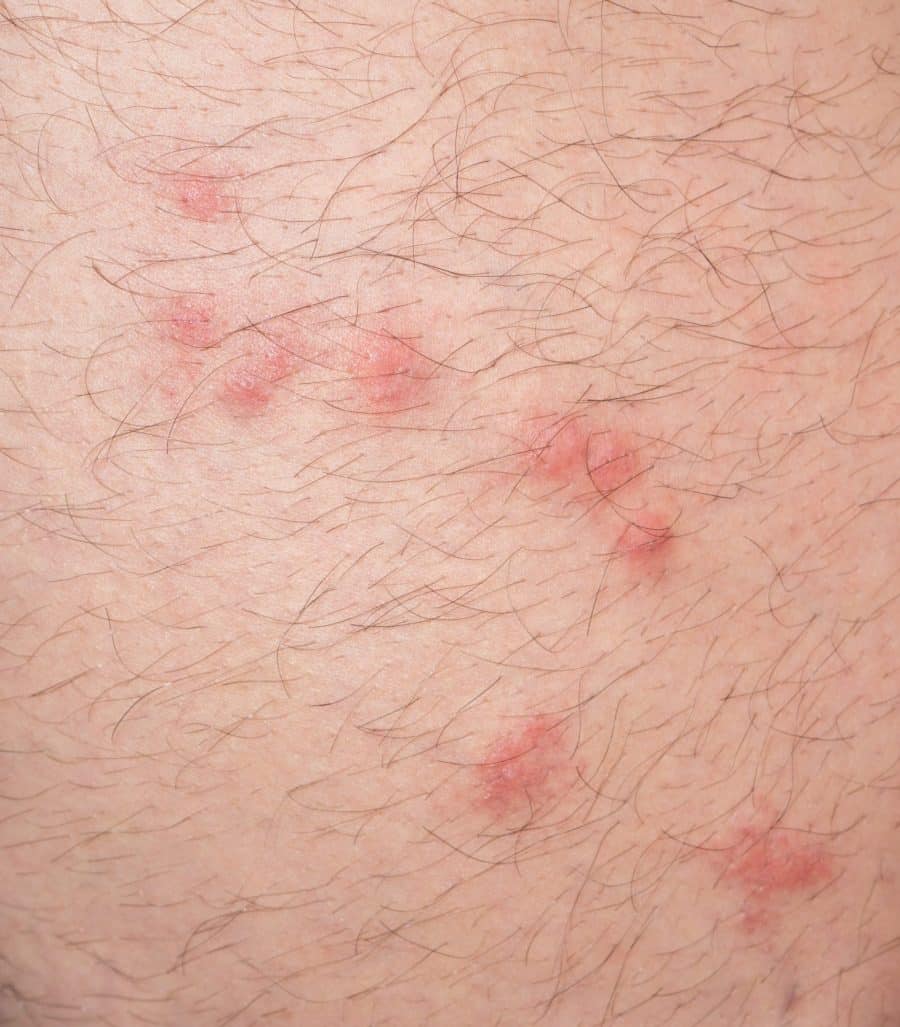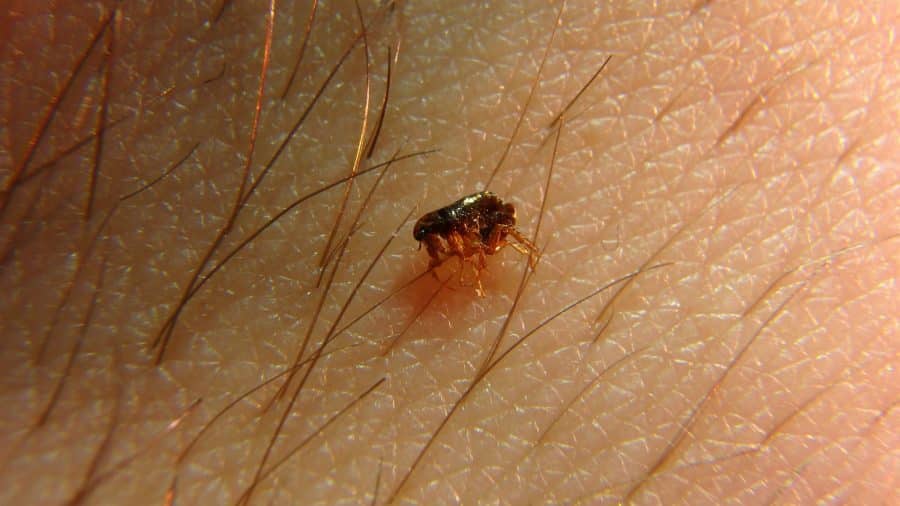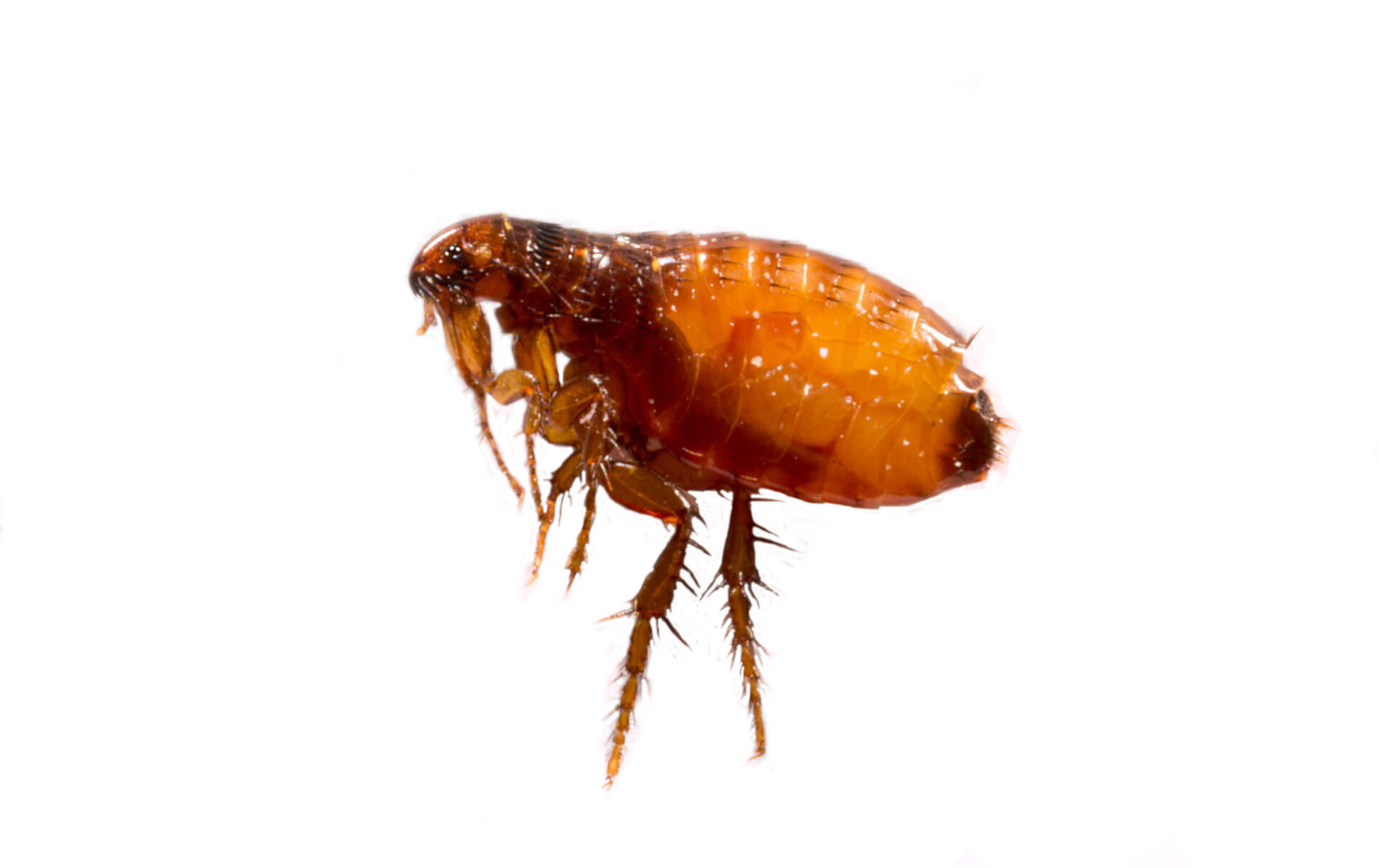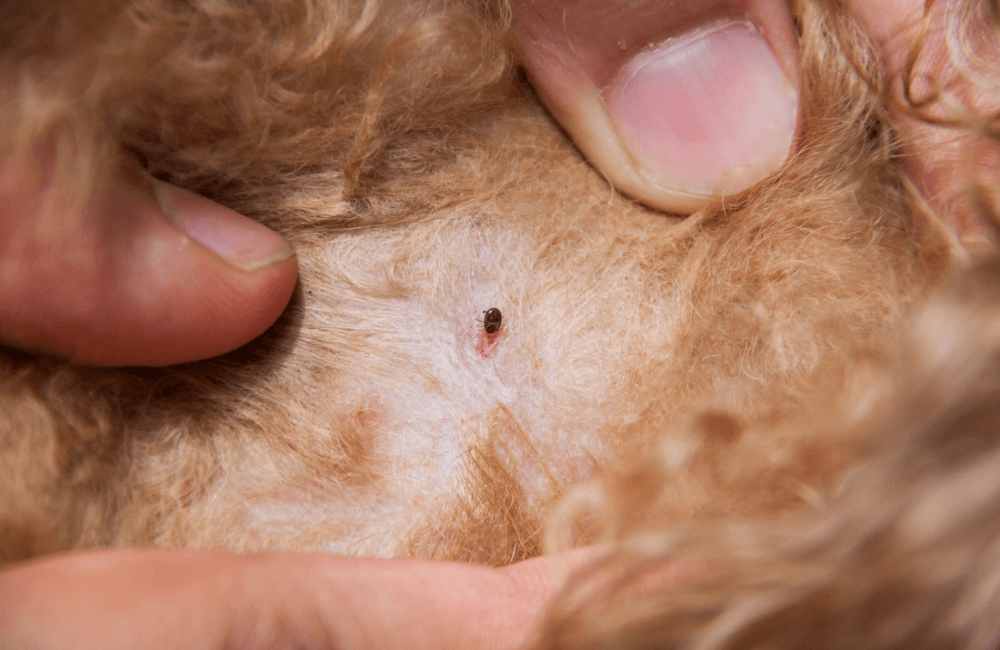Flea Treatment Brisbane
Fleas are particularly insidious pests. Often, you won’t notice they’re in your home until you’re itchy and have swollen, red bites on your skin. These tiny intruders can plague both you and your pet with constant discomfort and scratching.
Blue Chip Termite & Pest Control can rid you of fleas quickly, safely and effectively. Our treatments can rid your home of fleas and prevent them from coming back.

SIGNS OF A FLEA INFESTATION
Fleas can strike even if you don’t have pets, and they thrive in warm environments like Brisbane. Sometimes you can accidentally take them home if you work with animals or have been out and about in areas with high flea populations. Sometimes visitors, second-hand furniture and even carriers like rodents sneak them inside.
Some signs that your home needs pest control for fleas include:
PETS SCRATCHING EXCESSIVELY
Flea infestations are extremely itchy for both humans and animals. If your pets are scratching a lot more than usual, it’s time to check them out, starting with their ears and backs.
FLEAS, FLEA DIRT AND EGGS
Visible fleas, flea dirt, or small white eggs may appear on your pet’s skin or on other surfaces, such as bedding, where pets spend a lot of time.
ITCHY, RED BUMPS
You and your family members may find yourselves with itchy red bumps, particularly around your legs and ankles. These raised, itchy welts often come grouped together in clusters.
FLEA SIGHTINGS
Sometimes a flea outbreak is so obvious you can see it with your own eyes, and no further investigation is needed. Fleas are fond of soft furnishings, and if you walk around your home in white socks, you can detect them on your feet.
CALL US TODAY OR get a quote for all your pest control needs
Blue Chip’s Professional Flea Treatment
Home flea treatments, such as sprays and cleaning, won’t cut it in the hot climate of Brisbane or Queensland. Here’s how Blue Chip Termite & Pest Control takes a thorough and effective approach to flea treatment:

OUTDOOR AREAS
At Blue Chip Termite & Pest Control, we’ll start outside your home. We’ll ask you to mow your lawn a few days before treatment to allow us to thoroughly spray all of your outdoor spaces.
We carry out a full blanket spray of your entire yard. For raised houses, we also spray under the house. Using our high-pressure truck-mounted sprayers, we spray at 100 PSI. This ensures the spray reaches all the nooks and crannies, providing the best possible coverage.
INDOOR AREAS
Once we’ve covered the outdoors, we’ll apply our pest control for fleas inside your home. We take an intentional approach that focuses only on flea-prone areas. Fleas are jumpers, not climbers, so we don’t need to touch walls or curtains. The chemicals we use internally have little to no smell and won’t stain or damage any of your household contents.
If fleas are biting you in your bed, a simple cold wash won’t destroy the eggs. You will need to double-hot wash your bedding at least twice a week until the flea problem is gone. If a dryer is available, a hot cycle is recommended as eggs will only be destroyed at temperatures of 60°c or above. Cold washing will not do the job.
How To Prevent A Flea Infestation
Prevention is as important an element of flea pest control as the right kind of flea treatment. Here are some steps you can take to reduce the risk of a flea outbreak in your house:
VACUUM REGULARLY
Use a powerful vacuum cleaner on floors, mattresses and upholstery. Check tight spaces, such as cracks, which are common hiding places for larvae and eggs.
WASH ALL BEDDING
Wash your own bedding and your pets’ regularly in hot, soapy water and consider using a steam cleaner.
KEEP YOUR YARD CLEAN
Fleas love shady, warm spots, so it’s these areas that you should keep an eye on the most. Mow your lawn regularly and rake to remove debris.
WHY YOU NEED TO GET RID OF FLEAS
There are several reasons why you should get rid of fleas:
- Flea bites can be extremely itchy for both humans and animals. When you repeatedly scratch your skin over a long period of time, an infection can develop.
- Both people and animals can become hypersensitive to flea bites.
- In the case of pets, fleas often transmit tapeworm through their bites.

WHY CHOOSE BLUE CHIP’S PROFESSIONAL FLEA TREATMENT?
Blue Chip Termite & Pest Control are experienced flea treatment professionals in Brisbane. As a small business in a highly competitive field, we provide an honest and reliable service. We only use premium-grade chemicals to guarantee the best results, keeping up with the latest technologies and emerging products on the market.

You don’t have to share your life with these pests. Contact Blue Chip Termite & Pest Control today to regain control of your home.
-
Is it possible to get rid of fleas in my home without calling the professionals?
The quick answer is no. The internet is filled with homemade treatment suggestions that promise to eliminate fleas at home, but they rarely work as claimed. For example, spraying your property with lemon water and setting out pans filled with soapy water will not control the population of fleas in your home, let alone their complete extermination.
Among the reasons that fleas are hard to get rid of is that they lay eggs all day long, and the eggs are impervious to most, if not all, DIY treatment methods. To prevent your problem from worsening, call our specialists as soon as possible.
-
When are fleas most active?
Fleas and ticks are most active in the evening after sunset. Fleas move around the most when the environment is cooler and darker, which is also when activities like egg-laying take place. After the period of peak activity, fleas are least active in the morning, even though they are never completely dormant. They are parasites that do not sleep and may lay eggs and produce excrement throughout the day.
Fleas will become more active and have a higher chance of hatching earlier if they are disturbed through things like vibration and movement (mowing the lawn, walking around wooden flooring, and hosing paved areas).
-
What flea preventive measures can I attempt on my own?
If you are not using a reliable monthly flea preventative on your pets, you should inspect them for fleas on a regular basis. If this becomes a problem, it is best to consult your favourite pet shop for a suitable flea treatment product, preferably followed up with a monthly preventative.
Some of the tasks that you can carry out on your own include washing all beddings, including the pets, on a hot wash and regular vacuuming of surfaces. You can also double-bag the vacuumed waste to prevent any live fleas and ticks from escaping.
-
What is the process to gain control of my flea problem?
A mild to medium flea infestation can usually be controlled with one spray. This involves spraying all of the house floors, footpaths, and lawn. For heavily infested properties, two or three treatments may be required. The full process will be explained upon booking.
-
Can fleas climb?
No.
-
Are there different types of fleas?
Yes, cats and dogs have different types of fleas, but the treatment is the same.
-
What areas do you treat?
- All lawn areas and under the house if exposed.
- Full spray of the internal floors of the house.
- Pets will also need to have flea treatments supplied by your vet or pet store (on an ongoing basis).
-
What weather conditions are needed for a flea treatment?
At least one week of dry weather is needed after the treatment.
-
How many treatments are needed to sort out the problem?
- Two to three sprays at 2-week intervals are required.
- Pesticide sprays do not kill the eggs that hatch within 2 weeks.
-
What do I need to do to prepare for the treatment?
- Mow the lawn short a few days before the treatment so the chemical can penetrate deep into the grass.
- Start treating your pets straight away.
- Have the kids out of the house for around 2 hours (during and after the treatment).
- Honest
- Reliable
- Quality Service
Areas We Service
As a family-owned and operated business based in Brisbane’s Northside, our service areas include
- Brisbane through to Caboolture
- Redcliffe to Samford
- West End to Springwood

